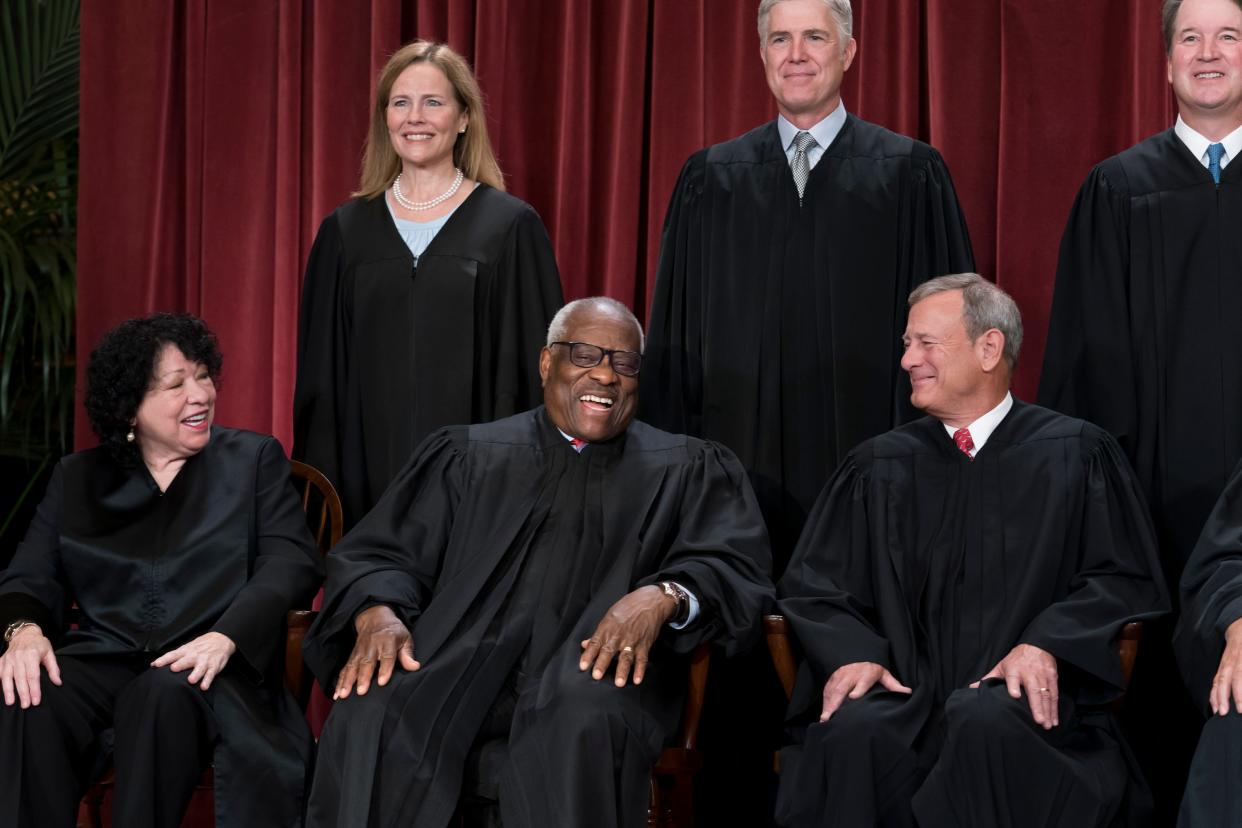There's one word missing from the Supreme Court's new code of conduct that makes the whole thing toothless

Federal judges have lots of legal requirements. The Supreme Court's new ethics code uses weaker words.
The code of conduct unveiled Monday never uses "shall." It generally uses "should."
That could be because there's no outside body with the power to hold the judges accountable.
When most federal judges get dealt a case involving a friend or family member, the law is clear: They "shall" recuse themselves.
Under the ethics rules that the Supreme Court set out for itself on Monday, the admonition is softer: they "should" recuse themselves.
After a raft of stories in 2023 about Clarence Thomas' and Samuel Alito's acceptance of lavish gifts, Sonia Sotomayor pushing her books, and other justices rubbing shoulders with millionaire lawyers at exclusive events, all nine justices of the Supreme Court said Monday that they had agreed to a code of ethics.
The code is very similar to the code of conduct that binds lower federal judges. The five canons have the same titles, and some passages are lifted verbatim from the other judges' code. The Supreme Court even noted the similarity.
But there are several differences — and one is key. Other judges are told, "A judge shall disqualify himself or herself in a proceeding in which the judge's impartiality might reasonably be questioned."
For the Supreme Court, the new rule reads: "A Justice should disqualify himself or herself in a proceeding in which the Justice's impartiality might reasonably be questioned." "Should," not "shall."
But even if the word was "shall," there's still no recourse for those who may disagree with a Justice's decision to not recuse themself. If a member of the public wants to make a complaint about a federal judge, the law lays out how. But that law, the Judicial Conduct & Disability Act, doesn't define "judge" to include Supreme Court justices, partly over legal concerns that Congress can't tell the Supreme Court what to do.
The Supreme Court's Code of Conduct doesn't have any enforcement mechanism, saying that the ethics rules are voluntary and rely on ethical self-regulation by the Justices.
Some of the top court's critics were quick to seize on the differences between the rules for other judges and the new Supreme Court ethics code. "Without a clear enforcement mechanism, this 'code of conduct' is just a PR stunt," the group Accountable.US said in an emailed statement.
Read the original article on Business Insider


